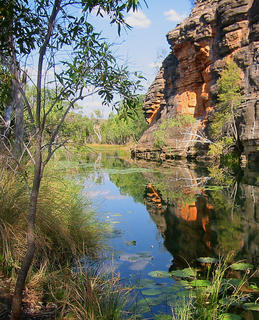Wednesday, October 19, 2005
The Value of "Wildness"
Kathleen Dean Moore, a professor of Philosophy at Oregon State University, writes about the "Moral Equivalent of Wildness" in her book The Pine Island Paradox. I ran into an excerpt of the book in issue 355 of The Sun magazine this past summer and really liked it. It speaks quite eloquently about what outdoor experience provides, about what we human beings gain when we immerse ourselves in nature and "swallow wildness in great gulps."
 I liked the essay for two main reasons. First, it's written about Moore's experience taking students camping and canoeing as part of her "Philosophy of Nature" class. Being in the woods with a small group of people, holding class and discussing ideas about nature, after all, is precisely what Castle Rock does. Secondly, the essay focuses on how to define "wildness," and how it might be brought into, or even recognized, in our ordinary lives. Here too, the CRI programs prompt a similar question. Experiencing the wild nourishes us, but how?
I liked the essay for two main reasons. First, it's written about Moore's experience taking students camping and canoeing as part of her "Philosophy of Nature" class. Being in the woods with a small group of people, holding class and discussing ideas about nature, after all, is precisely what Castle Rock does. Secondly, the essay focuses on how to define "wildness," and how it might be brought into, or even recognized, in our ordinary lives. Here too, the CRI programs prompt a similar question. Experiencing the wild nourishes us, but how?One student, Moore reports, suggested that wildness is valuable because it provides "silence," an opportunity to "hear," or really feel our "connection to the great out-there." Another student offered "mystery" as the key.
"I believe mystery is a good thing. The great mystery isn't an enemy to fight or a hole to fill. It's a source of strength and comfort. The existence of so much that we don't understand is a gift to us. That great mystery is what wildness is, and wildness is a great mystery."
Ultimately, Moore suggests experiencing wildness offers us an awareness of wholeness, of connectedness and our own participation. This kind of inter-relatedness, she notes, can inspire to a kind of "moral resolve" in the face of different "moral landscapes," diverse communities, and apparently unrelated situations.
Great stuff! Experiencing the wild nourishes us by enlivening relationships, exposing inherent beauty, and energizing our feelings of care and respect for all things "other." If that is the value of wildness— extending and deepening our relationships with "others" (broadly defined)— then it lies at the heart of who we are as human beings, and can serve, as it does at Castle Rock, as the basis for our educational pursuits.


